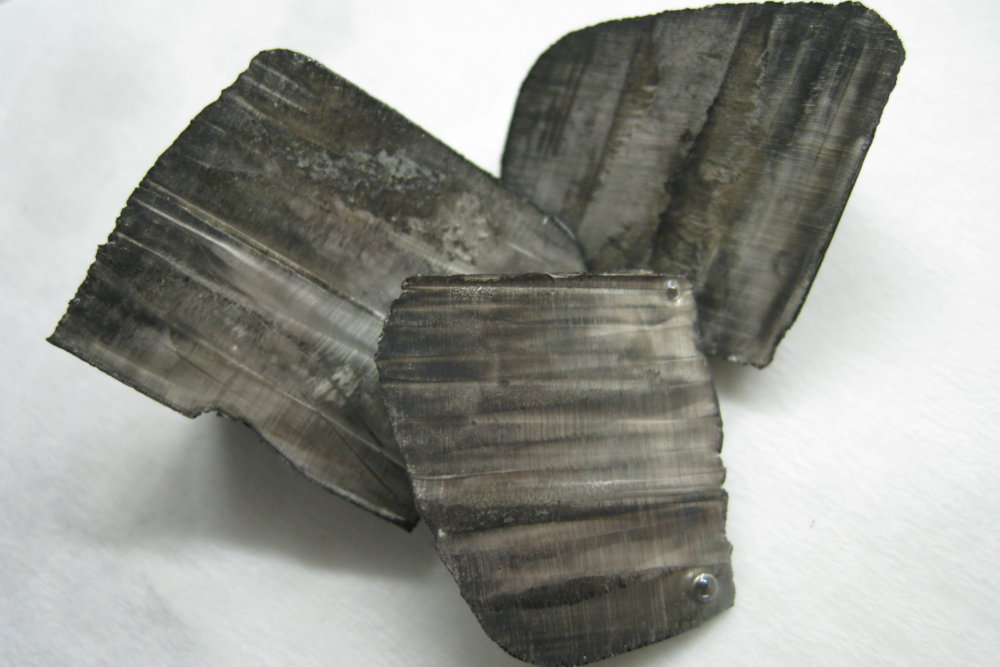
Researchers at the Brighton and Sussex Medical School are part of a team who've found naturally occurring lithium in public drinking water may have an anti-suicidal effect.
Along with other scientists from King's College London, the Brighton researchers have found a link between the amount of trace lithium in water supplies and rates of suicide.
The scientists are careful to say that, although the data they brought together appears to show a relationship between the concentration of the metal and the occurrence of self-harm, the figures have not proven a direct cause.
Their data was collected from other research from around the world.
Professor Anjum Memon, Chair in Epidemiology and Public Health Medicine at BSMS and lead author of the study, said:
"It is promising that higher levels of trace lithium in drinking water may exert an anti-suicidal effect and have the potential to improve community mental health.
"The prevalence of mental health conditions and national suicide rates are increasing in many countries. Worldwide, over 800,000 people die by suicide every year, and suicide is the leading cause of death among persons aged 15-24 years.
"In these unprecedented times of COVID-19 pandemic and the consequent increase in the incidence of mental health conditions, accessing ways to improve community mental health and reduce the incidence of anxiety, depression and suicide is ever more important."
The Brighton and Sussex Medical School described Lithium, sometimes referred to as the 'Magic Ion', as a widely and effectively used medication for the treatment and prevention of manic and depressive episodes, stabilising mood and reducing the risk of suicide in people with mood disorders.
Its anti-aggressive properties can help reduce impulsivity, aggression, violent criminal behaviour and chronic substance abuse.
Scientists agree that lithium is a natural element, the lightest of all metals under normal conditions though never occurring freely in nature, and is found in variable amounts in vegetables, grains, spices and drinking water.
It is present in trace amounts in virtually all rocks, and is mobilised by weathering into soils, ground and standing water, and thus into the public water supply.
History shows that the health benefits and curative powers of naturally occurring lithium in water have been known for centuries.
The "Lithia Springs", an ancient Native American sacred medicinal spring, with its natural lithium-enriched water, is renowned for its health-giving properties.
In fact, the popular soft drink 7-Up contained lithium when it was created in 1929.
Recent studies have also linked lithium to reduced incidence of Alzheimer's disease and other dementias.
According to the Brighton scientists, this raises the potential for its preventative use to combat the risk of dementia.
Professor Allan Young, Chair of Mood Disorders at research partners King's College London, said:
"This synthesis and analysis of all available evidence confirms previous findings of some individual studies and shows a significant relationship between higher lithium levels in drinking water and lower suicide rates in the community.
"The levels of lithium in drinking water are far lower than those recommended when lithium is used as medicine although the duration of exposure may be far longer, potentially starting at conception.
"These findings are also consistent with the finding in clinical trials that lithium reduces suicide and related behaviours in people with a mood disorder."
Professor Memon added:
"Next steps might include testing this hypothesis by randomised community trials of lithium supplementation of the water supply, particularly in communities (or settings) with demonstrated high prevalence of mental health conditions, violent criminal behaviour, chronic substance abuse and risk of suicide.
"This may provide further evidence to support the hypothesis that lithium could be used at the community level to reduce or combat the risk of these conditions."
Professor Carmine Pariante from the Royal College of Psychiatrists, commented:
"This study shows that the boundaries between medication and nutritional interventions are not as rigid as we used to think, opening up the possibility of new treatments that span both domains.
More knowledge of the beneficial properties of lithium and its role in regulating brain function can lead to a deeper understanding of mental illness and improve the wellbeing of patients with depression and other mental health problems."
The study involved systematic review and meta-analysis of all previous studies on the subject - conducted in Austria, Greece, Italy, Lithuania, UK, Japan and USA - which correlated naturally occurring lithium levels in drinking water samples and suicide rates in 1,286 regions/counties/cities in these countries.
The study is published in the British Journal of Psychiatry.
It was supported by BSMS, and part-funded by the National Institute for Health Research (NIHR) Biomedical Research Centre at South London and Maudsley NHS Foundation Trust and King's College London.
You can read the study here: British Journal of Psychiatry https://doi.org/10.1192/bjp.2020.128


 Overnight Closures For A22 Forest Row Road Improvements
Overnight Closures For A22 Forest Row Road Improvements
 Brighton Defence Manufacturer's Controversial Planning Application Likely To Be Heard
Brighton Defence Manufacturer's Controversial Planning Application Likely To Be Heard
 Over £2.4m Approved For Worthing School Support Centre
Over £2.4m Approved For Worthing School Support Centre
 Section Of M25 To Close Again Tonight - As Drivers Warned Not To Get Complacent
Section Of M25 To Close Again Tonight - As Drivers Warned Not To Get Complacent
 Plans For 800 New Horsham Homes Refused
Plans For 800 New Horsham Homes Refused
 Over 200 Co-Living Flats Approved For Brighton
Over 200 Co-Living Flats Approved For Brighton
 Teenager In Custody On Crawley Attempted Murder Charge
Teenager In Custody On Crawley Attempted Murder Charge
 Appeal Following Assault In Hastings
Appeal Following Assault In Hastings
 Road Closed As Armed Police Attend Incident In Worthing
Road Closed As Armed Police Attend Incident In Worthing
 Lewes District Council Placed In Planning Special Measures
Lewes District Council Placed In Planning Special Measures
Comments
Add a comment